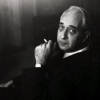Lionel Trilling

Lionel Trilling
Lionel Mordecai Trillingwas an American literary critic, short story writer, essayist, and teacher. He was one of the leading U.S. critics of the twentieth century who traced the contemporary cultural, social, and political implications of literature. With his wife Diana Trilling, whom he married in 1929, he was a member of the New York Intellectuals and contributor to the Partisan Review...
NationalityAmerican
ProfessionCritic
Date of Birth4 July 1905
CountryUnited States of America
The poet is in command of his fantasy, while it is exactly the mark of the neurotic that he is possessed by his fantasy.
Literature is the human activity that takes the fullest and most precise account of variousness, possibility, complexity, and difficulty
This is the great vice of academicism, that it is concerned with ideas rather than with thinking.
In the American metaphysic, reality is always material reality, hard, resistant, unformed, impenetrable, and unpleasant.
Educating a son I should allow him no fairy tales and only a very few novels. This is to prevent him from having 1. the sense of romantic solitude (if he is worth anything he will develop a proper and useful solitude) which identification with the hero gives. 2. cant ideas of right and wrong, absurd systems of honor and morality which never will he be able completely to get rid of, 3. the attainment of ''ideals',' of a priori desires, of a priori emotions. He should amuse himself with fact only: he will then not learn that if the weak younger son do or do not the magical honorable thing he will win the princess with hair like flax.
Freud ... showed us that poetry is indigenous to the very constitution of the mind ; he saw the mind as being, in the greater part of its tendency, exactly a poetry-making faculty.
Our culture peculiarly honors the act of blaming, which it takes as the sign of virtue and intellect.
The diminution of the reality of class, however socially desirable in many respects, seems to have the practical effect of diminishing our ability to see people in their difference and specialness.
Every neurosis is a primitive form of legal proceeding in which the accused carries on the prosecution, imposes judgment and executes the sentence: all to the end that someone else should not perform the same process.
It is possible that the contemplation of cruelty will not make us humane but cruel; that the reiteration of the badness of our spiritual condition will make us consent to it.
It is told of Faraday that he refused to be called a physicist; he very much disliked the new name as being too special and particular and insisted on the old one, philosopher, in all its spacious generality: we may suppose that this was his way of saying that he had not over-ridden the limiting conditions of class only to submit to the limitation of a profession.
I find righteous denunciations of the present state of the language no less dismaying than the present state of the language.
At the bottom of at least popular Marxism there has always been a kind of disgust with humanity as it is and a perfect faith in humanity as it is to be.
If one defends the bourgeois, philistine virtues, one does not defend them merely from the demonism or bohemianism of the artist but from the present bourgeoisie itself.